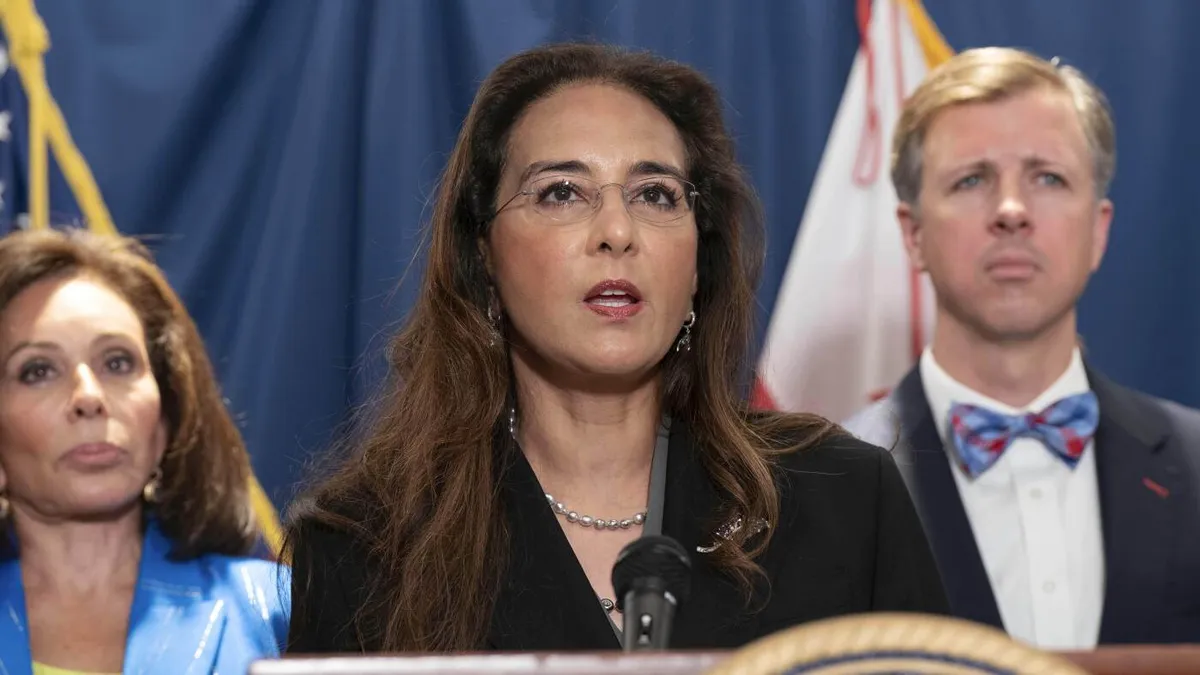
The Department of Justice (DOJ) is ramping up its efforts to obtain sensitive elections data, filing lawsuits against two Democratic-controlled states—Oregon and Maine—who have resisted the department's requests. This legal action aims to gain access to each state's voter registration list, which includes personal information such as partial Social Security numbers.
The DOJ's lawsuits target the secretaries of state in Oregon and Maine, marking the first legal actions taken against states that have not complied with federal requests for sensitive voting data. Oregon Secretary of State Tobias Read expressed his concerns, stating, "If the President wants to use the DOJ to go after his political opponents and undermine our elections, I look forward to seeing them in court." He emphasized his commitment to protecting the rights and privacy of Oregon's citizens.
According to the lawsuits, the DOJ claims that it has not received sufficient answers or supporting evidence to verify whether these states are adhering to federal laws regarding the maintenance of accurate voter registration lists. Harmeet Dhillon, head of the DOJ's Civil Rights Division, stated, "States simply cannot pick and choose which federal laws they will comply with." She highlighted the importance of ensuring that American citizens feel confident in the integrity of the electoral process, warning that noncompliance could lead to legal consequences.
Maintaining accurate voter lists is a complex task, particularly as thousands of Americans move or pass away daily. States have the constitutional authority to oversee their own elections, and courts have generally set a low bar for the requirements needed to keep registration lists up-to-date. This has led to frustration among those advocating for more transparency and aggressive list purging. Some groups have even circulated misleading information about widespread electoral fraud to support the need for stricter list maintenance.
The head of the Justice Department's Voting Section, Maureen Riordan, has a history with a conservative law firm known for suing various states over alleged list-maintenance violations. Furthermore, Dhillon has been associated with spreading false claims about election fraud. These backgrounds raise questions about the motivations behind the DOJ's current requests for voter data.
Shenna Bellows, Maine's Secretary of State and a Democratic candidate for governor, remarked that the DOJ's recent requests for voter data are unprecedented. "This is not normal," she stated, expressing her concerns from constitutional, privacy, and political perspectives, particularly because the DOJ appears to be targeting Democratic secretaries of state. Bellows also highlighted the federal government's poor track record in safeguarding sensitive personal information.
Requests for voter data from the federal government have typically been met with strong resistance from state officials. For instance, former Mississippi Secretary of State Delbert Hosemann famously rejected similar requests from the Trump administration in 2017, suggesting they could "go jump in the Gulf of Mexico." Bellows reiterated this sentiment earlier this year, reflecting the apprehension among election officials regarding the current administration's intentions with voter data.
Recent reports have surfaced regarding the Trump administration's activities, including the processing of over 33 million voter records through a citizenship verification tool at the Department of Homeland Security (DHS). However, little information has been provided about the tool's accuracy or security. During a meeting with voting officials, DHS representatives attempted to alleviate concerns, stating, "We don't want your data. We don't want your lists." However, subsequent statements indicated that DHS is collaborating with the DOJ to share data, raising further questions about data privacy.
The DOJ's escalation in demanding sensitive elections data from Oregon and Maine has sparked significant debate over the implications for electoral integrity, privacy, and state rights. As the legal battle unfolds, the focus remains on ensuring that the electoral process remains transparent and secure for all American citizens.